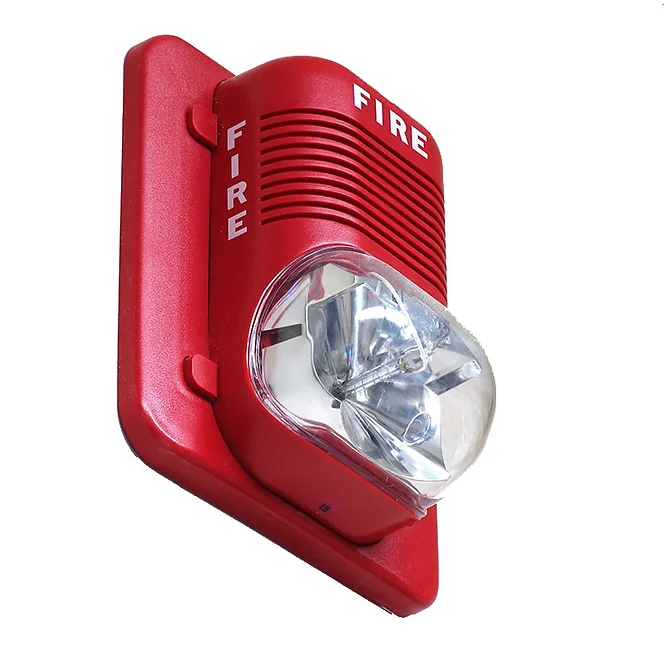
Fire Alarm
Alarms are essential in keeping your property safe. We install, inspect, test, and maintain systems to comply with the codes and regulations of your local and/or state jurisdiction.

- Commercial Fire Alarm Installation
- Fire Alarm Integrations
- Fire Alarm Monitoring
- Fire Alarm Services
- Fire Alarm Testing
- Fire Alarm Inspections
Fire alarms are designed to detect the presence of fire and to sound an alarm to warn people of the fire. Fire alarms are typically installed in homes, businesses, and other buildings.
There are many different types of fire alarms, but they all work similarly. They have a sensor that detects the presence of fire and sound an alarm to warn people. The notice may be a loud siren, a flashing light, or both.
Fire alarms are essential because they can save lives. They can alert people to a fire so that they can evacuate safely. They can also alert the fire department so that they can respond quickly and put out the fire.
Fire alarms are required by law in many jurisdictions. Ensuring your home or business has a working fire alarm is essential. You should also test your fire alarm regularly to ensure it works properly.
Commercial Fire Alarm Installation
The installation process typically begins with a site survey. This is where the fire alarm contractor will assess the building and determine the type of system needed. The contractor will also identify the locations where the fire alarm devices will be installed.
Once the site survey is complete, the contractor will install the fire alarm system. This includes installing the control panel, detectors, notification devices, and other required components. The contractor will also test the system to ensure it works properly.
Another reason for fire alarm integration is to improve efficiency and convenience. By connecting the fire alarm system to other systems, you can automate tasks and reduce the required manual work. For example, if there is a fire, the fire alarm system can automatically notify the fire department and send them the location of the fire. This can help the fire department to respond more quickly and efficiently.
Commercial fire alarm installation is a complex process that requires a high level of expertise. Hiring a qualified fire alarm contractor must ensure the system is installed correctly and meets all of the local fire codes is crucial.
Here are the steps involved in commercial fire alarm installation:
- Planning The first step is to plan the installation. This includes determining the type of system that is needed, the location of the fire alarm devices, and the wiring and other infrastructure that will be required.
- Installation: The next step is to install the fire alarm system. This includes installing the control panel, detectors, notification devices, and any other components that are required.
- Testing: Once the system is installed, it must be tested to make sure that it is working properly. This includes testing the sensors, the notification devices, and the control panel.
- Training: The final step is to train the building occupants on how to use the fire alarm system. This includes how to activate the alarm, how to evacuate the building, and how to use the fire extinguishers.
Commercial fire alarm installation is a complex process that requires a high level of expertise. It is important to hire a qualified fire alarm contractor to ensure that the system is installed properly and that it meets all of the local fire codes.
Fire Alarm Integrations
Fire alarm integration is connecting a fire alarm system to other systems in a building, such as a security system, access control system, or building automation system. This can be done for various reasons, such as to improve safety, efficiency, or convenience.
One common reason for fire alarm integration is to improve safety. Connecting the fire alarm system to other systems can create a more comprehensive security system to protect your building and its occupants better. For example, if there is a fire, the fire alarm system can automatically unlock doors and turn off the HVAC system, which can help to prevent the fire from spreading.
Another reason for fire alarm integration is to improve efficiency and convenience. By connecting the fire alarm system to other systems, you can automate tasks and reduce the required manual work. For example, if there is a fire, the fire alarm system can automatically notify the fire department and send them the location of the fire. This can help the fire department to respond more quickly and efficiently.
Fire Alarm Monitoring
Fire alarm monitoring uses a third-party company to monitor your fire alarm system and notify the fire department in the event of an alarm. This can be done through various methods, such as a phone line, cellular, or internet connection.
There are a number of benefits to fire alarm monitoring:
- It can help to ensure that your fire alarm system is working correctly. The monitoring company will regularly test your system to ensure it detects smoke and heat correctly.
- Fire alarm monitoring can help to reduce the time it takes for the fire department to respond to a fire. The monitoring company will notify the fire department immediately when an alarm is triggered, which can help the fire department to arrive on the scene more quickly.
Knowing that a professional company is monitoring your fire alarm system can give you peace of mind knowing that you are taking steps to protect your family and property from fire.
Fire Alarm Maintenance
Fire alarm maintenance keeps your fire alarm system in good working order. This includes testing the system regularly, cleaning the components, and replacing any worn or damaged parts.
One common reason for fire alarm integration is to improve safety. Connecting the fire alarm system to other systems can create a more comprehensive security system to protect your building and its occupants better. For example, if there is a fire, the fire alarm system can automatically unlock doors and turn off the HVAC system, which can help to prevent the fire from spreading.
Another reason for fire alarm integration is to improve efficiency and convenience. By connecting the fire alarm system to other systems, you can automate tasks and reduce the required manual work. For example, if there is a fire, the fire alarm system can automatically notify the fire department and send them the location of the fire. This can help the fire department to respond more quickly and efficiently.



